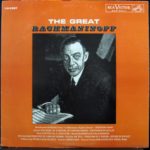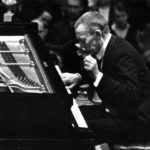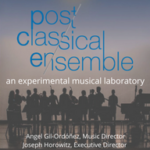Charles O’Connell, who commanded “artists and repertoire” for RCA Victor from 1930 to 1944, left a book of reminiscences – The Other Side of the Record (1947) – documenting an astute, querulous intellect and a meddlesome ego. It was often O’Connell who decided what music famous conductors, pianists, and violinists might commercially record. O’Connell admired Sergei … [Read more...] about Rachmaninoff Uncorked — Take Two: RCA, Ormandy, and the Cork
Uncategorized
Rachmaninoff Uncorked
Today's "Wall Street Journal" includes my review of "one of the most searing listening experiences in the history of recorded sound" -- the new Marston Records 3-CD set: "Rachmaninoff Plays Symphonic Dances" -- which you can sample here. My review reads: One of the saddest and most paradoxical artistic exiles of the 20th century was Sergei Rachmaninoff, who fled the Russian … [Read more...] about Rachmaninoff Uncorked
What Are Orchestral Musicians For?
Years ago, before I was shown the door, I briefly taught at the Manhattan School of Music within their graduate program for aspirant orchestral musicians. My intention was to impart some knowledge about the history of the orchestra in order to shed light on the decline of orchestras and of orchestral performance – and to suggest that young musicians might be able contribute … [Read more...] about What Are Orchestral Musicians For?
THE FUTURE OF ORCHESTRAS — Part Six: What’s an Orchestra For?
Back in the 1990s, Harvey Lichtenstein – who recreated the Brooklyn Academy of Music – invited me to lunch and asked me if I wanted to run an orchestra. Harvey had just read my notorious Jeremiad Understanding Toscanini: How He Became an American Culture-God and Helped Create a New Audience for Old Music. That was published by Knopf when a book about classical music might … [Read more...] about THE FUTURE OF ORCHESTRAS — Part Six: What’s an Orchestra For?
On Rescuing a “Dead Art Form” — Take Two
It seems to me pretty obvious that nowadays it’s far easier to stage a successful Hamlet or Three Sisters than a successful Aida or Siegfried. And one reason is equally obvious: finding an actor to play Hamlet or Masha is no problem; finding a dramatic soprano for Aida or a Heldentenor for Siegfried is difficult to impossible. At the heart of Conrad L. Osborne’s … [Read more...] about On Rescuing a “Dead Art Form” — Take Two




